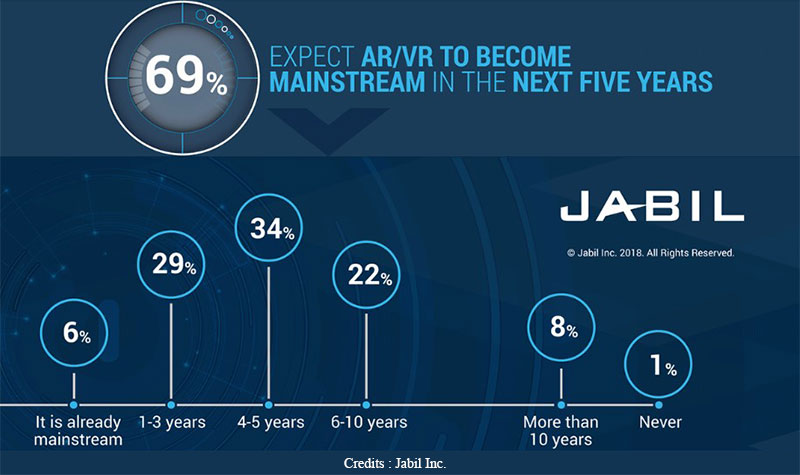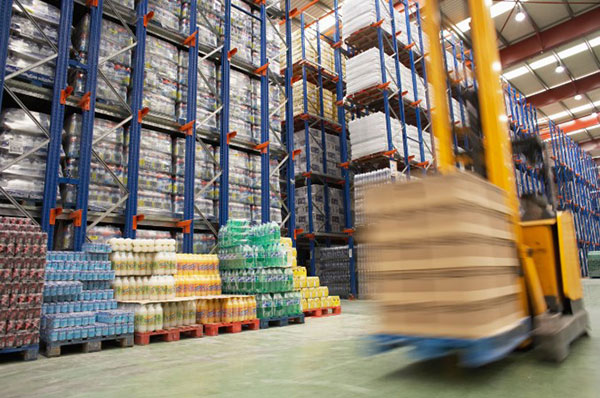- Call Us - US: +1 415 230 0398
- UK: +44 7466035003
- Email Us:
- hello@medrectechnologies.com
The Future of AR/VR and IoT for Businesses
In order to develop an understanding about the future of AR/VR and IoT for businesses, we must first realize briefly that what is AR, VR and IoT.
AR, in other terms which is reckoned as Augmented Reality is considered as the integration of digital informational details with the user’s environmental experience in real time.
On the other hand, VR which is reckoned as Virtual Reality is considered as the usage of computer technologies for creating a simulated environment, as a completely artificial environment. Virtual reality is also renamed as near reality for its reality emulation.
Lastly, IoT (Internet Of Things) is considered as a system or mechanics of interconnected and interrelated computing devices, mechanical and digital machines, objects, animals or people who are provided with a chance of unique identification and the capability of transferring data through a network which necessitates the requirement of human to human or human to computer interaction as well as communication.
The Future of AR/VR (Augmented Reality/Virtual Reality )for BusinessesCertain AR/VR devices on the market which are concerned with the businesses like tablets, headsets, smart phones provide various spheres of experience in realistic spectrum.
As per the projection goes the Augmented Reality and Virtual Reality will merge and the outcome will be in two forms in the future, which will be tethered systems and standalone units. Tethered systems will be assimilated by a unit which can be put on the head with a wire attached to the processing unit. Standalone units will be incorporated by all systems starting from display to processing within the unit and will be available as wearable units as well.

The manufacturers chose a mixture between these two.
No existing system provides a complete, bondless and whole experience, therefore in business we will have to wait for more than three to five years for expecting and experiencing true AR/VR applications.
The market plan in businesses is not fixed in any case where 51% haven’t even started any initiative regarding AR and VR and mostly 99 percent of the organizations will adapt and module according to the market.
 The Future of IoT for Businesses
The Future of IoT for Businesses
There are some predictions about the future of IoT in businesses. Those can be mentioned in brief and to be precise in a nutshell. Those are respectively;
- By the end of the year 2025, it is estimated as well as projected that there will be more than 21 billion IoT devices as within five years starting from 2016 to 2021, the increase has been 6.9 billion IoT devices, ending up in 11.6 billion IoT devices in 2021.
- Cybercriminals will keep on continuing to utilize the IoT device which will in order facilitate the Distributed Denial of Service attack. The backstory goes as in the year 2016 the world was first introduced to the IoT malware which is considered as a chain of malicious software which is capable of making the connected devices infectious. Later on, the malware turned the malfunctions devices into a botnet and benefitted the DDoS attack which will over-rush websites with internet traffic.
- Consumers, cities and organizations will incorporate smart technologies and will in order to save time and money which will make the cities smart.
- The artificial intelligence will continue to dominate as smart home hubs, thermostats, lighting systems record the usage pattern and voice recording devices will enhance the machine learning, which is Artificial Intelligence.
- The home routers will keep on continuing to become relatively safer, smarter and more secure as many other routers don’t have security software installed within them.
- Many wireless carriers have brought out 5G networks in the year 2019. The fifth generation cellular wireless promises greater speed and more connection with the authentic smart devices which will eventually and gradually fuel the IoT growth.
- 5G will make the automobile industry in a higher state. There will be driverless cars soon enough. The data will move faster as the new cars will be smarter and connect to other IoT devices nearby and far.
- Fifth generation IoT devices will connect to 5G network in a greater way. The home users will face issues in monitoring IoT devices. There will be a certain reliability on cloud based storage thus the doorway towards new privacy and origination of new security options will become handy and open.
- IoT devices will be used to track and direct other attacks which will make the attack formation more dangerous.
- Security and privacy concerns will open the gate and move towards legislation and regulatory activities.
 Conclusion
Conclusion
The companies in the market are looking out for partners and experienced vendors in cases of AR/VR and in IoT we will see a significant amount of things which can capture data and present a lot of information.
Hire the Top Software Development Professionals
How can we help?